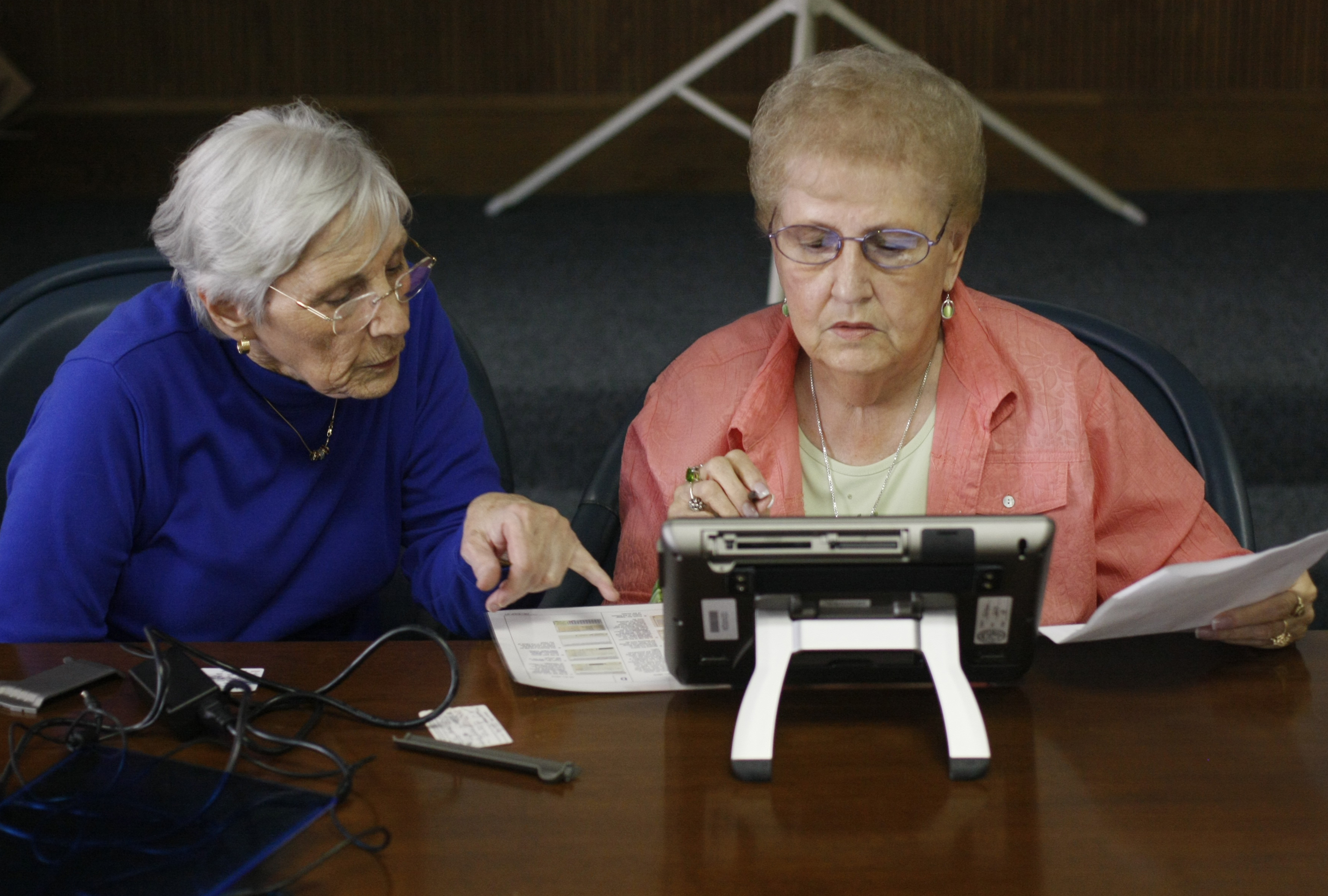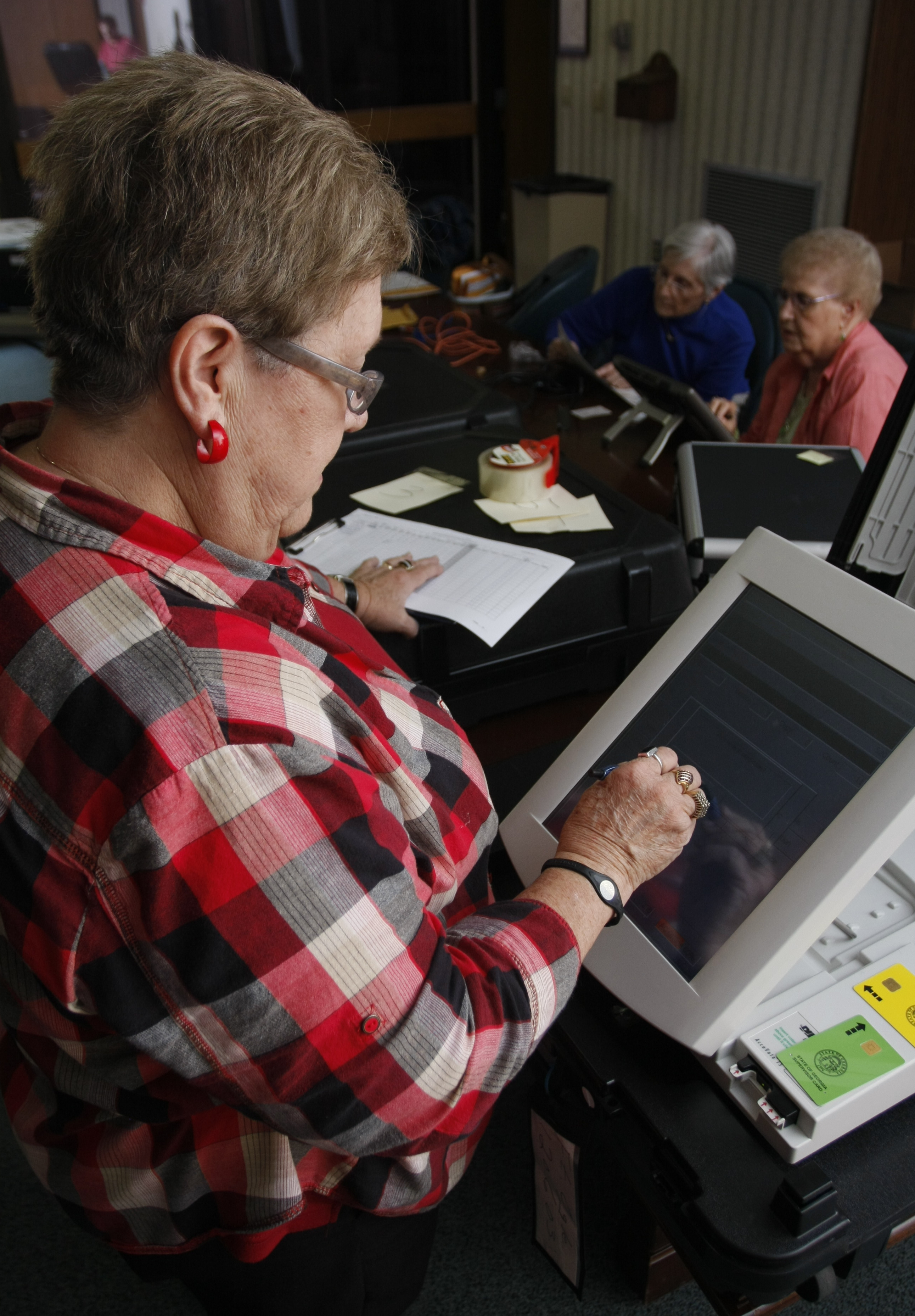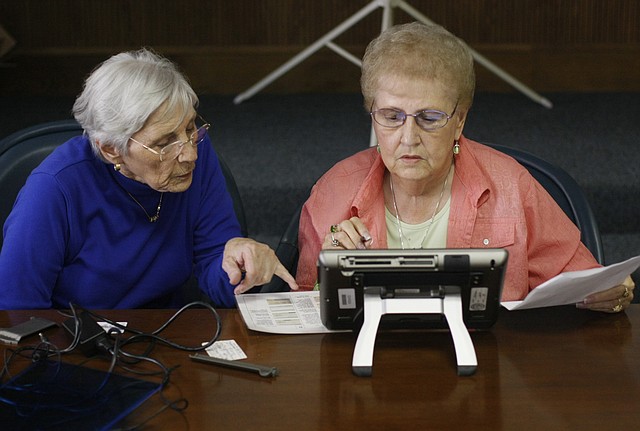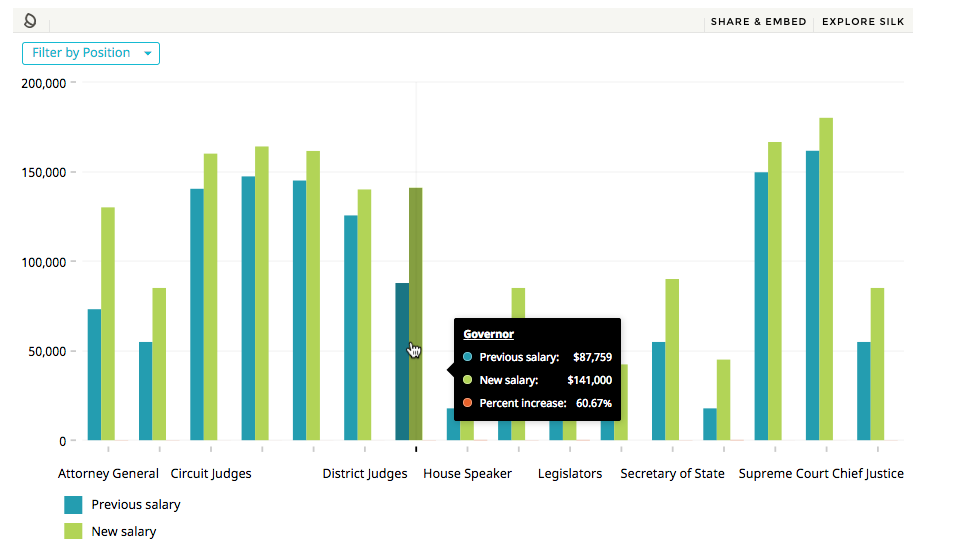LaFayette, Ga., switches to digital touch-screen voting ballots for election
Friday, January 1, 1904
 Orma Luckey, left, and Marie Holder, right, test out the new Expresspoll, which contains the names of all registered voters in the city. These machines will be used in Lafayette, Ga. in the up coming election. The upcoming election will be the first time Lafayette, Ga. uses electronic machines to facilitate voting.
Photo by Allison Carter
Orma Luckey, left, and Marie Holder, right, test out the new Expresspoll, which contains the names of all registered voters in the city. These machines will be used in Lafayette, Ga. in the up coming election. The upcoming election will be the first time Lafayette, Ga. uses electronic machines to facilitate voting.
Photo by Allison CarterLaFayette voters will cast digital ballots from touch-screen computers for the first time when Northwest Georgians go to the polls next month.
"It'll be something new for them and they'll like it," said Barbara Berry, superintendent of elections for Walker County. "The touchscreens have helped us out tremendously."
LaFayette has asked Walker County to handle its municipal election on Nov. 8, meaning the county will bring in its computer-terminal voting machines, putting an end to the city's hand-counted paper ballots it has been using for at least 20 years.
Other communities in Northwest Georgia adopted e-voting years ago.
"They're behind the time," said Orma Luckey, elections superintendent for Fort Oglethorpe, which introduced the machines in 2005. "It's faster and, in a way, it's more accurate."
Luckey said she likes the machines because voters can change their vote if they mistakenly highlight the wrong candidate at first.
In Whitfield County, election technician Shirley Hamrick said very few residents had any issues with the machines when the county switched in about 2002.
"If you can just touch a microwave or something, you can do it," she said.
Hamrick said the switch to touch screens made things much simpler for poll workers. With paper ballots, staff had to lug around 75-pound tubs of ballots at the end of the night.
But not everyone agrees that computerized is better.
Hamilton County, Rossville, and Lookout Mountain, Ga., still use paper ballots, which one voting rights watchdog said can help with transparency.
Bev Harris, founder and director of Renton, Wash.-based BlackBoxVoting.org, supports hand-counting votes in public, which she said is done in more than 1,000 locations around the country. The key is for the count to take place in the public eye.
 Donna Bomar, left, tests a touch screen voting machine Thursday in Fort Oglethorpe, Ga. as Orma Luckey, center, and Marie Holder, right, test out the new Expresspoll, which contains the names of all registered voters in the city. These machines will be used in Lafayette, Ga. in the up coming election. The upcoming election will be the first time Lafayette, Ga. votes electronically. Photo by Allison Carter.
Donna Bomar, left, tests a touch screen voting machine Thursday in Fort Oglethorpe, Ga. as Orma Luckey, center, and Marie Holder, right, test out the new Expresspoll, which contains the names of all registered voters in the city. These machines will be used in Lafayette, Ga. in the up coming election. The upcoming election will be the first time Lafayette, Ga. votes electronically. Photo by Allison Carter."If they close the door and draw the blinds, that doesn't work," she said.
In Tennessee, Hamilton, Picket and Benton counties are the only counties that don't use touch-screen machines, according to the Secretary of State's Office.
Charlotte Mullis-Morgan, administrator of elections for Hamilton County, said her department has the touch screens which are used for voters with special needs. But most voters select their candidates on paper ballots that are read by optical scanners that electronically tally the votes.
Russanna Jenkins, elections superintendent for Rossville, said she expects only about 300 or 400 voters, so it's cheaper and simpler to use paper ballots.
"I'm just not sure it would be worth the processes you have to go through with the machines," she said. "It doesn't take us very long to count 300 ballots."
Printing the paper ballots costs about $200, Jenkins explained. She said the cost of programming the voting machines was much more when she priced it a few years back.
But now, Berry said, programming is handled in the form of a free database downloaded from Kennesaw State University. LaFayette is paying for a $250 template and $600 to the county for the machines and staff.
Berry believes the city should break even or save money on staffing costs from making the switch.
"I think they're coming out a little ahead in LaFayette," she said.
Mullis-Morgan says she prefers having the voters' choices recorded on paper, just in case.
"We have a paper trail," she said. "We've got the ballots we can look at if there's a problem."

